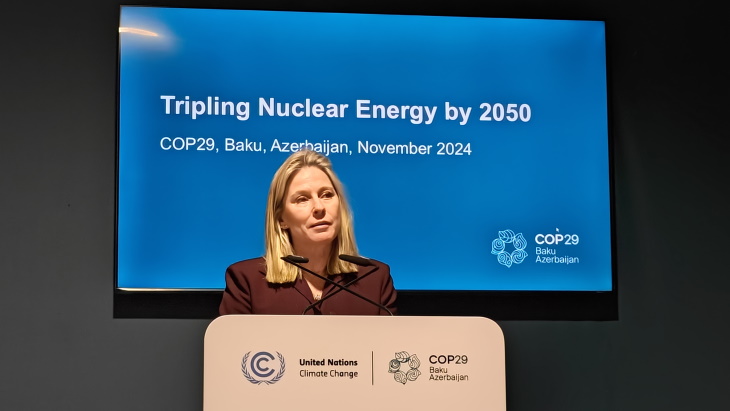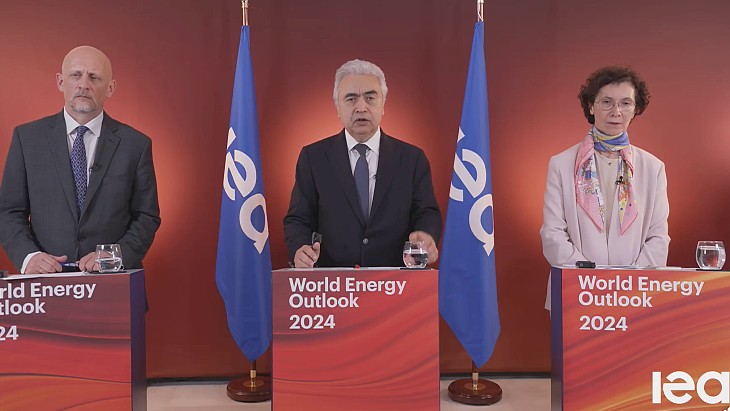Counting the cost of air pollution
Two recent publications have highlighted the issue of air pollution, including that from energy generation. The International Energy Agency (IEA) today published a strategy for cutting premature deaths from air pollution, while the Organization for Economic Cooperation and Development (OECD) has studied the economic costs of it.
According to the IEA, some 6.5 million deaths annually are linked to air pollution, "with the number set to increase significantly in coming decades unless the energy sector takes greater action to curb emissions". It suggests that premature deaths from outdoor air pollution will rise from the current 3 million to 4.5 million by 2040, while deaths from household air pollution will fall from 3.5 million to 3 million.
In a World Energy Outlook special report, entitled Energy and Air Pollution, the IEA identifies contributions the energy sector can make to curb poor air quality, which it says is the fourth-largest threat to human health, after high blood pressure, poor diet and smoking.
"Energy production and use - mostly from unregulated, poorly regulated or inefficient fuel combustion - are the most important man-made sources of key air pollutant emissions: 85% of particulate matter and almost all of the sulfur oxides and nitrogen oxides," the IEA said.
The IEA report presents a Clean Air Scenario, demonstrating how energy policy choices backed by just a 7% increase in total energy investment through 2040 would produce a strong improvement in health. Under such a scenario, premature deaths from outdoor air pollution would decline by 1.7 million in 2040, compared with its main scenario, and those from household pollution would fall by 1.6 million annually.
Under the Clean Air Scenario, total world primary energy demand increases from 13,546 million tonnes of oil equivalent (toe) in 2013 to 15,663 million toe in 2040. While energy supply from coal and oil decline slightly over this period, that from gas increases slightly. Energy supply from nuclear energy almost doubles between 2013 and 2040, from 646 million toe to 1180 million toe. Renewables see the biggest growth over this period, from 161 million toe in 2013 to 1153 million toe in 2040.
Launching the report, IEA executive director Fatih Birol said, "Clean air is a basic human right that most of the world's population lacks. No country - rich or poor - can claim that the task of tackling air pollution is complete. But governments are far from powerless to act and need to act now. Proven energy policies and technologies can deliver major cuts in air pollution around the world and bring health benefits, provide broader access to energy and improve sustainability."
The IEA highlights three key areas for government action: setting an ambitious long-term air quality goal; putting in place a package of clean air policies for the energy sector; and ensuring effective monitoring, enforcement, evaluation and communication.
"We need to revise our approach to energy development so that communities are not forced to sacrifice clean air in return for economic growth," said Birol. "Implementing the IEA strategy in the Clean Air Scenario can push energy-related pollution levels into a steep decline in all countries. It can also deliver universal access to modern energy, a rapid peak and decline in global greenhouse gas emissions and lower fossil-fuel import bills in many countries."
Economic consequences
Earlier this month, the OECD published a report entitled The Economic Consequences of Outdoor Air Pollution, according to which outdoor air pollution could cause six to nine million premature deaths annually by 2060 and cost 1% of global GDP - around $2.6 trillion per year.
It estimates that global air pollution-related healthcare costs are projected to rise from $21 billion last year to $176 billion in 2060.
"Despite a partial decoupling of economic activity and air pollutant emissions in some areas, emissions are projected to grow particularly rapidly in regions with higher economic growth or with increasing shares of energy and energy-intensive sectors," the OECD said.
"In the absence of additional and more stringent policies, increasing economic activity and energy demand will lead to a significant increase in global emissions of air pollutants," it said. "Policies to limit air pollution emissions would lead to an improvement in air quality, reduce risks of very severe health impacts, and, if properly implemented, generate considerable climate co-benefits."
Researched and written
by World Nuclear News

_99697.jpg)








_50521.jpg)

